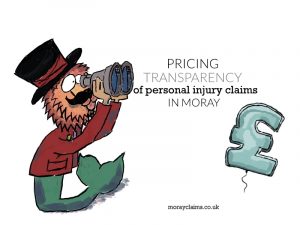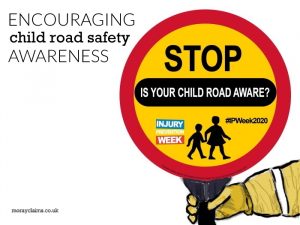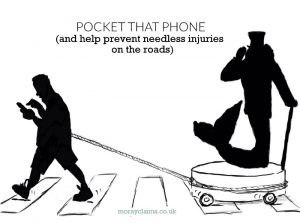When asked about his nationality, legendary Scottish fiddler, Johnny Cunningham, liked to tell people that he was half Scottish and half Irish. This explained, he said, why half of him wanted to drink all the time and the other half never wanted to pay for it. Everyone prefers a free option if it’s realistic… …and cost is one important aspect of personal injury compensation claims. What is it that personal injury clients want? In many cases they will say that it’s about “justice”. It’s the principle of the thing. In practice, what this boils down to is questions about how much your claim is likely to be worth and how long it is all likely to take to get justice for you. From the solicitor’s point of view, the main question tends to be: “Is there a claim?” - Will we be able to prove someone caused your injury by negligence? And, of course, another important question you’ll have is: “How much is it going to cost me to get help from this solicitor? Cost Continue Reading
When being even 10 per cent to blame for your own injury is too much
“Can I buy or sell a house without a solicitor?” Grigor & Young have newspaper cuttings books back to the 19th century, and that’s how one cutting from the mid-1980s is headlined. The body text continues: “In theory, you can do much of the work yourself. In theory, you can also remove your own appendix – given a sharp knife, a reliable textbook and a bit of practice.” Seth Godin picked up on this theme of expertise in a post on his daily blog. He asked: “Okay, how hard can it be? (to be an expert). Actually, it might be very hard. Actually, expertise has value. Actually, just because someone said it on the internet doesn’t mean it’s true. Or useful.” What’s the chance you’d be able to do such conveyancing or (especially) surgery yourself? Limited, you would think. Less than 10%? Less than 1%? And a small chance is what you would expect to have, in general, if you were hoping to overturn a finding of 10% contributory negligence in a personal injury Continue Reading
Encouraging child road safety awareness
Nearly two-thirds of parents do not think their children have a good understanding of the dangers or concentrate properly near roads That’s one of the findings of a YouGov survey commissioned by the Association of Personal Injuries for Injury Prevention Week 2020. In the UK-wide study, parents of school-age children were asked to think about how confident they are about their child or children’s road safety awareness. The child road safety survey results are as follows. The remainder said their children have a very good understanding of the dangers – which is great - but we want to address the near 2/3rds of parents who are not so confident. Your biggest helper comes in the form of the Green Cross Code. Arguably, it’s as important for children to learn as spelling and multiplication. The Highway Code says that children should be taught the Green Cross Code and should not be allowed out alone until they can understand and use it properly. This is Continue Reading
Pocket that phone and help prevent needless injuries on the roads
It does not look the sort of road you would expect to see a pedestrian try to cross. Other than at traffic lights. Or using a bridge or underpass. Viewed through the dashcam of the slow-moving car in queuing traffic, we can see it’s an urban environment. The road has 4 lanes in each direction (we’re in the 3rd lane). A continuous concrete barrier about 4 feet high forms the central reservation. A young woman steps off the pavement to our left and begins crossing from left to right – for her, crossing the first half of the road. She’s on her mobile. She’s holding it up to her right ear. We can see her left hand gesturing as she chats. The field of view is distorted by the wide angle lens of the dashcam – it makes things look further away than they are in fact. As the woman crosses in front of our vehicle, she bows slightly to thank us for making room for her to pass through. The outside lane to our right has been empty throughout the 8 seconds or so since she Continue Reading



